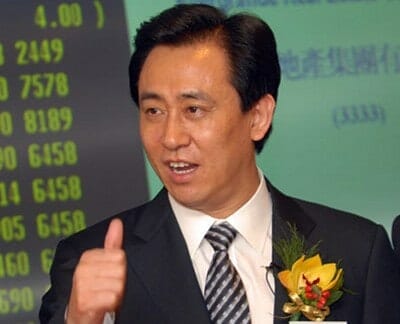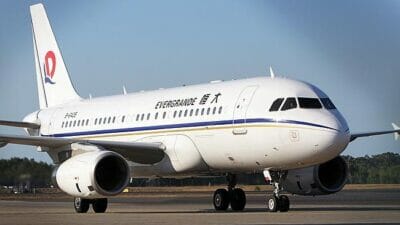
Evergrande boss Xu Jiayin seems all set to approve some more acquisitions
Evergrande Real Estate’s core net profits fell by 23 percent in the first half of 2016 as an increase in revenue was unable to offset a range of higher costs. Total borrowings for China’s most highly levered developer jumped to RMB 381.3 billion ($57 billion) with financing costs expanded threefold from this time last year.
Apart from rising financing costs, Evergrande indicated in releasing its mid-year financials that other causes of the profit slide included higher expenditures for building materials and marketing, which increased by 51 percent. Profits fell to RMB 7.8 billion ($1.2 billion) in the first half after the developer earned RMB 10.2 billion ($1.5 billion) during the same period last year, Bloomberg reported.
Despite the drop in profits, revenue increased by 12.6 percent to RMB 87.5 billion ($13.1 billion) on the back of China’s housing market recovery. Contracted sales also improved, rising by 63 percent during the first six months.
Evergrande Keeps Buying Despite Debt Load
At the same time that its profits have taken a beating, China’s second-largest homebuilder has continued to rack up debt, as Reuters reports that Evergrande has spent $4 billion on banks, construction companies and rivals in 2016. The recent purchase of a 6.82 percent share in China Vanke for RMB 14.57 ($2.18 billion) in August was the latest move in a string of high profile transactions completed by the developer’s billionaire chairman, Xu Jiayin.
In order to fund these acquisitions, the Guangzhou-based developer has relied on a wide range of financing, including its controversial use of perpetual notes. Deal Street Asia reported that the developer now has RMB 116 billion ($17.3 billion) of these notes on issue, up from RMB 76 billion ($11.3 billion) at the end of last year. These notes, which were first issued in China in 2013, are considered to be bonds with no maturity dates and Evergrande has taken advantage of the opportunity to book the obligations as equity on company balance sheets.
The developer claims it is finished issuing perpetual bonds as it has satisfied its land needs. The company also reported that its debt-to-equity ratio has dropped six basis points to 92.9 percent since the end of 2015.
“If we hadn’t determined to acquire land by high leverage, we wouldn’t have accumulated a land bank of 180 million square meters, beating any other developer,” Evergrande chief executive Xia Haijun said at an earnings briefing. “That will secure us a high growth in sales in the next 3-5 years, and the gearing will come down in that time.”
Analysts Downgrade Evergrande on Profit Slide

Part of the debt may come from paying for the chairman’s private Airbus
Evergrande’s use of perpetual notes does not sit easy with some. Hong Kong-based analyst Alan Jin from Mizuho Securities Asia wrote in a note that they view them as essentially being a form of debt.
According to CNBC, CIMB Bank downgraded its rating on Evergrande after news of the falling profits broke as it was worried about net gearing as well as the developer’s continual use of perpetual bonds. According to CIMB, Evergrande’s debt level surged to about 600 percent by the end of June if perpetual notes were considered to be debt.
“Such high leverage could put the company at high risk if there is a sudden change in liquidity or a sharp slowdown in the property market in China,” analysts from CIMB stated. “We do not think perpetual bonds are ideal source of funding due to high cost and earnings erosion. We believe Evergrande needs to fund its growth in a more disciplined way.”
Earlier in the year, Standard & Poors’ lowered its rating for Evergrande’s unsecured bonds to CCC+, while Moody’s downgraded its debt rating to B3. Additionally, the developer’s risk of default increased to 6.2 percent in April.
Leave a Reply